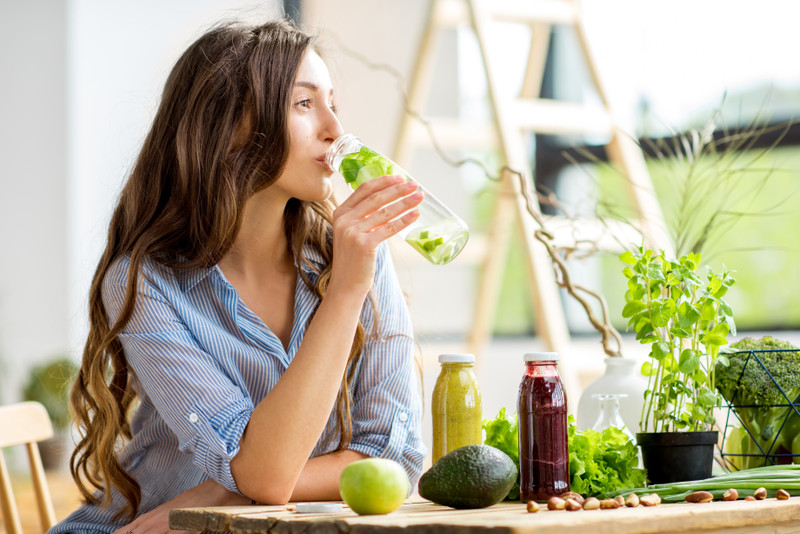Your body is naturally equipped with powerful detox systems that work around the clock to filter out toxins, process nutrients, and keep everything running smoothly. Your liver, kidneys, lungs, skin, and digestive system are all key players in this process. But when your body faces stress, poor diet, or exposure to environmental toxins, it can use some extra nutritional support to function at its best.
Instead of restrictive “detox diets” or harsh cleanses, the most effective way to support detoxification is through balanced nutrition and targeted nutrients that help your body’s natural detox pathways do their job more efficiently.
Here’s how nutrition can support your body’s built-in detox systems—and which vitamins and minerals make the biggest difference.
1. B Vitamins: Energizing Your Liver’s Detox Enzymes
Your liver is the main hub for detoxification, processing everything from environmental pollutants to hormones and medications. The detox process happens in three main phases, all of which rely heavily on B vitamins to function properly.
B-complex vitamins—especially B2 (riboflavin), B3 (niacin), B6 (pyridoxine), B9 (folate), and B12 (cobalamin)—help your liver convert toxins into water-soluble compounds that can be safely excreted through urine or bile. Without enough B vitamins, this process slows down, leading to toxin buildup and fatigue.
How to get them:
Include foods like eggs, leafy greens, legumes, whole grains, and salmon. A high-quality B-complex supplement can also help ensure you meet your daily needs.
2. Magnesium: The Mineral That Keeps Everything Moving
Magnesium supports more than 300 enzymatic reactions in the body, including those involved in detoxification. It plays a key role in glutathione production, one of the body’s most powerful antioxidants used by the liver to neutralize toxins.
It also helps with muscle function, hydration, and elimination, all of which are essential for your body to move waste out efficiently. Low magnesium levels can make you feel sluggish and interfere with your body’s ability to clear out toxins effectively.
How to get it:
Magnesium-rich foods include almonds, spinach, pumpkin seeds, and avocados. You can also supplement with magnesium glycinate or magnesium citrate for optimal absorption and relaxation benefits.
3. NAC (N-Acetyl Cysteine): A Detox Powerhouse
N-acetyl cysteine (NAC) is one of the most effective nutrients for supporting your body’s detox defenses. It serves as a precursor to glutathione, often called the “master antioxidant,” which helps the liver process harmful substances and reduce oxidative stress.
NAC is particularly beneficial for people exposed to pollutants, alcohol, or medications that strain the liver. It can also support respiratory health by helping clear mucus and protect lung tissue from inflammation.
How to get it:
NAC is not found naturally in foods, so supplementation is typically the best option. However, you can boost your body’s natural cysteine levels by eating sulfur-rich foods such as garlic, onions, and cruciferous vegetables like broccoli and kale.
4. Vitamin C: Supporting Cellular Detox and Immunity
Vitamin C is an essential antioxidant that protects cells from oxidative damage caused by free radicals and toxins. It also helps regenerate glutathione and supports kidney function by promoting the excretion of waste products.
In addition, vitamin C plays a role in maintaining a strong immune system, which is vital for protecting your body during detoxification. The kidneys rely on hydration and antioxidant support to function efficiently, and vitamin C provides both.
How to get it:
Eat plenty of citrus fruits, strawberries, kiwi, and bell peppers. Supplementation may also be beneficial, especially during times of stress or illness.
5. Zinc and Selenium: Trace Minerals for Detox Balance
While they’re needed only in small amounts, zinc and selenium are essential for liver function and antioxidant protection. Zinc helps the liver process alcohol and toxins, while selenium supports the activity of glutathione peroxidase—an enzyme that neutralizes harmful compounds in the body.
Together, they help prevent oxidative stress and promote healthy detox enzyme activity.
How to get them:
Zinc can be found in shellfish, nuts, and seeds, while selenium is abundant in Brazil nuts, eggs, and seafood. Many high-quality multivitamins include both minerals for balanced support.
6. Antioxidant-Rich Foods: Supporting Cellular Health
Antioxidants from colorful fruits and vegetables provide your liver and kidneys with ongoing protection from oxidative stress. Foods high in polyphenols, carotenoids, and flavonoids help counteract the damage caused by toxins and environmental pollutants.
Berries, leafy greens, green tea, and beets are especially beneficial. Beets, in particular, are rich in betaine, which supports liver function and bile production—two critical elements of detox.
7. Hydration: The Unsung Hero of Detox
Water is vital for flushing toxins through the kidneys and maintaining electrolyte balance. Proper hydration helps move waste products out of the body efficiently while supporting digestion and nutrient absorption. Adding electrolytes or herbal teas like dandelion or ginger can further enhance hydration and detox support.
Bringing It All Together
Your body’s detox system is remarkably effective when supported with the right nutrients. Instead of extreme cleanses, focus on whole, nutrient-dense foods and targeted supplements that promote healthy liver and kidney function.
B vitamins, magnesium, NAC, and antioxidants form the foundation of a balanced detox plan, keeping your body’s natural pathways working efficiently. Pair this with plenty of hydration, movement, and sleep, and you’ll be giving your body everything it needs to renew, recover, and thrive.

